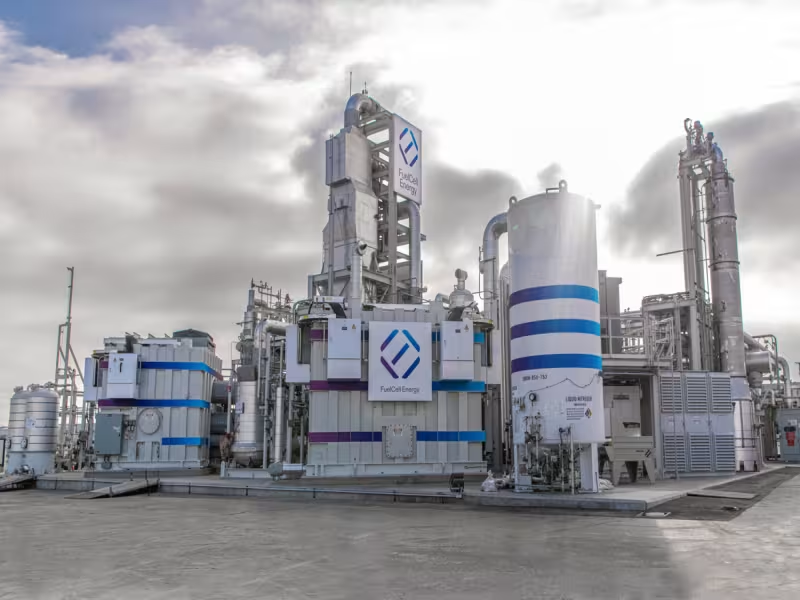
SHERIDAN, WYOMING – October 12, 2024 – When Toyota was looking to update its operations at the Port of Long Beach in California more than a decade ago, it didn't just want to construct a new building. It wanted to rethink the facility's impact on the planet.
Long Beach is the second busiest port in the U.S., second only to neighbor Port of Los Angeles. Toyota Logistic Services (TLS) Long Beach is Toyota's largest vehicle processing facility in North America, responsible for moving more than 200,000 Toyota and Lexus vehicles off ocean ships at the port each year. Aside from off-loading vehicles coming in, TLS is responsible for adding accessories ordered by customers, ranging from door guards and floor mats to TRD wheels or upgraded suspension kits. Then, the cars, trucks and SUVs are put on trains or trucks en route to dealerships all over the western part of the U.S., sometimes even being shipped as far as Texas.
Following many decades of operation and the processing of millions of vehicles, TLS Long Beach had grown to fill several different buildings in different parts of the port campus, spanning over 117 acres and housing 250 team members. Consolidating operations would improve efficiency, but it was also an opportunity to reduce Toyota's carbon footprint. This is the kind of exercise that's going on throughout Toyota's global operations, all part of the plan to get to carbon neutrality by 2050 to support Toyota's Environmental Challenge 2050. In the case of TLS Long Beach, the lynchpin to a different kind of future was a unique kind of hydrogen-electric, fuel cell facility called Tri-gen.
"We're always keeping our eyes open for technologies or innovations that may benefit us and those that could be used somewhere else," said Mark Yamauchi, sustainability strategy manager at Toyota Motor North America. "At the port, we needed hydrogen for fuel-cell vehicles. We found a technology that literally creates hydrogen out of garbage."
Toyota is no stranger to fuel cell technology, but it decided to collaborate with FuelCell Energy since they specialize in the large-scale molten carbonate fuel cell system. As the heart of the Tri-gen system, it takes directed biogas to create renewable energies.
Tri-gen is short for "triple generation," as Tri-gen uses directed biogas to produce three products: renewable electricity, renewable hydrogen, and usable water. The facility was developed, built and is currently operated at TLS Long Beach by Connecticut-based FuelCell Energy as a large-scale molten carbonate fuel cell system that runs on hydrogen that is created from the incoming biogas. The system was commissioned by Toyota, with construction announced in 2017, as part of the TLS Long Beach campus updates. The system's construction was completed in 2023, with a grand opening celebration held on May 2, 2024.
"It took a while to get to this point, but now it's just part of our normal operation," said Jeffrey White, senior manager at Toyota Logistics Services Long Beach. "We're getting electricity, hydrogen and water. It's seamless."
It's cool technology, but it's more than that. Tri-gen is an example of how the efforts to reduce emissions in Toyota's operations require unique, site-specific solutions. In the same way that Toyota is offering multiple powertrains in its vehicle lineup to help reduce or eliminate carbon dioxide emissions from the tailpipes of its vehicles for automotive consumers, reducing carbon dioxide emissions in business operations is going to require an all-of-the-above approach.